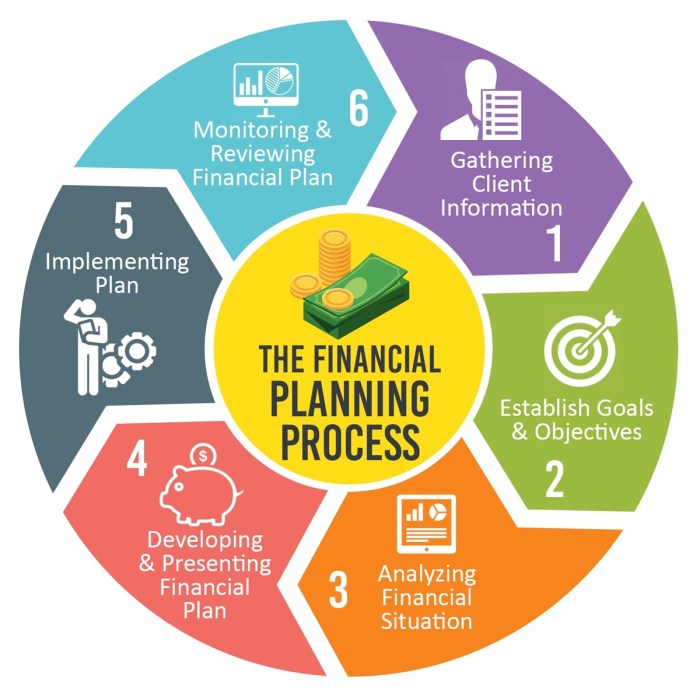financial organization tips sets the stage for this enthralling narrative, offering readers a glimpse into a story that is rich in detail with american high school hip style and brimming with originality from the outset.
In this guide, we will dive into the importance of financial organization tips, setting realistic financial goals, budgeting techniques, and organizing financial documents. Get ready to revolutionize the way you manage your money!
Importance of Financial Organization Tips
Financial organization tips are essential for managing personal finances effectively. By staying organized, individuals can have a clear overview of their expenses, income, and financial goals.
Better Budgeting and Savings
Being organized financially allows individuals to create detailed budgets based on their income and expenses. This helps in identifying areas where they can cut back on spending and increase savings. For example, tracking expenses can reveal unnecessary subscriptions or impulse purchases that can be eliminated to save money.
Reducing Stress and Improving Financial Well-being
Financial organization plays a significant role in reducing stress related to money management. When individuals have a clear understanding of their financial situation, they can make informed decisions and plan for the future with confidence. This leads to improved overall financial well-being and peace of mind.
Setting Financial Goals
Setting financial goals is a crucial step in managing your money effectively. By defining clear objectives, you can create a roadmap for your financial journey and stay motivated to achieve them.
Aligning financial goals with personal values and long-term aspirations is key to ensuring that your money is being used in a way that truly matters to you. Whether it’s saving for a dream vacation, buying a home, or planning for retirement, your goals should reflect what is important to you.
Importance of Realistic Goals
Setting realistic and achievable financial goals is essential to avoid frustration and maintain momentum. It’s important to consider your current financial situation, income, expenses, and any debt you may have when setting your goals. By breaking down larger goals into smaller, manageable targets, you can track your progress and celebrate small victories along the way.
- Start by assessing your current financial situation and identifying areas for improvement.
- Set specific, measurable, achievable, relevant, and time-bound (SMART) goals to give you clear direction.
- Regularly review and adjust your goals as needed to stay on track and adapt to changes in your circumstances.
Budgeting Techniques
Budgeting is a crucial aspect of financial organization, helping individuals manage their income, expenses, and savings effectively. Different budgeting techniques can be utilized to create a solid financial plan tailored to individual needs and goals.
Zero-Based Budgeting
Zero-based budgeting is a method where income minus expenses equals zero, meaning every dollar earned is assigned a specific purpose. This technique requires individuals to allocate their income towards expenses, savings, and debt payments, leaving no room for unassigned funds.
50/30/20 Rule
The 50/30/20 rule suggests dividing income into three categories: 50% for needs, 30% for wants, and 20% for savings and debt repayment. This approach helps individuals prioritize essential expenses, allocate funds for discretionary spending, and build a financial cushion for the future.
Envelope System
The envelope system involves dividing cash into different envelopes designated for specific spending categories, such as groceries, entertainment, or transportation. By using cash for discretionary expenses, individuals can better track their spending and avoid overspending in each category.
Creating and Monitoring a Budget
- Start by calculating total monthly income from all sources.
- List all fixed expenses, such as rent, utilities, and loan payments.
- Estimate variable expenses, like groceries, entertainment, and transportation.
- Determine a realistic amount to allocate towards savings and debt repayment.
- Regularly track expenses and compare them to the budget to identify areas for adjustment.
- Make necessary changes to the budget to align with financial goals and maintain stability.
Organizing Financial Documents

Organizing financial documents is crucial for maintaining financial stability and ensuring easy access to important records when needed. By keeping bills, receipts, and statements in order, you can track expenses, monitor payments, and make informed financial decisions.
Creating a System for Storing and Accessing Records
- Designate a specific place for each type of document (bills, receipts, statements) to avoid misplacement.
- Use labeled folders or envelopes to categorize and store documents based on their purpose or date.
- Consider investing in a filing cabinet or storage box to keep physical documents organized and secure.
- Implement a digital backup system by scanning and saving important documents on your computer or cloud storage.
Digital Tools and Apps for Managing Financial Documents
- Utilize finance apps like Mint, Quicken, or YNAB to track expenses and manage financial records digitally.
- Scanbot or CamScanner can help in scanning and organizing physical documents into digital format for easy access.
- Consider using secure cloud storage services like Google Drive or Dropbox to store and access financial documents from anywhere.
- Set up email alerts for bill payments and statements to stay updated on financial transactions and deadlines.
